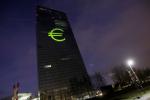
- All Instrument Types
- Indices
- Equities
- ETFs
- Funds
- Commodities
- Currencies
- Crypto
- Bonds
- Certificates
Please try another search

FTSE Finishes The Week Higher, Despite Historic Brexit Vote

European markets have plunged today, after UK voters caught complacent markets on the hop by deciding by 51.9 to 48.1 to leave the EU, in the process delivering a devastating verdict on a poisonous “Brexit” referendum campaign, casting aside the hyperbole from both sides to deliver an almighty vote of no confidence in the status quo.
The extent of the plunge was exacerbated by a market positioned in completely the wrong way as investors chose to place their faith in the pollsters, and threw caution to the winds, by betting big on a vote to “Remain”.
This abandonment of basic risk management principles also helps explain the sharp market reaction to the downside, though we still managed to stay well away from the China induced lows seen in February, as the G7 central banks made soothing noises about mitigating liquidity risk.
Equity markets today have been dragged down primarily by a weak banking sector as concerns about the overall health of the sector resurface at a time when German and UK bond yields hit fresh record lows, and peripheral bond yields rose on concern about contagion risk.
With a Spanish election looming at the weekend there is a worry that the ripple out effects of yesterday’s vote could prompt a shift in voting patterns as Spain gets ready to go to the polls for the second time within 12 months.
While banks have come under pressure and European indices have been battered the FTSE100 has been remarkably resilient with gold miners and health care outperforming, and while we have finished the day lower the index has still managed to finish the week higher.
Oil and gas giants BP (LON:BP) and Royal Dutch Shell (LON:RDSa) are also higher as the drop in the oil price gets offset by the sharp fall in the pound against the US dollar.
The FTSE 250 has also undergone a significant decline, though given its more domestic focus it has finished the week at its lowest levels since February.
Though UK banks have had a bad day UK house builders have fared worse, with Taylor Wimpey (LON:TW) and Persimmon (LON:PSN) and Barratt Developments (LON:BDEV) the heaviest fallers, as concerns about a fall in house prices weigh on the sector, with a decline in London house prices a main concern. On the flip side the decline in the pound could well cushion any sharp fall in prices.
US
US markets opened sharply lower at their lowest levels this month on the back of this morning’s declines in Europe led by banking stocks, as the prospects of interest rates lower for longer raise concerns about the future profitability of a sector that still has to confront a host of problems.
US durable goods for May continue to point to weak consumer demand contrasting starkly with some of the more recent personal spending data.
Morgan Stanley (NYSE:MS) shares have dropped sharply, though the bank has poured cold water on reports that it would look to relocate 2,000 UK staff to Dublin or Frankfurt.
FX
The pound has been the big loser today despite hitting its highest level this year late yesterday evening at $1.50 on expectation of a vote to remain. In the aftermath the pound plunged to a 31 year low at $1.3228 in early Asia trade as traders caught the wrong way round sold the pound heavily. The pound also hit a two year low against the euro before recovering some ground, as traders bet that a Bank of England rate cut could be in the offing in the coming weeks.
The Japanese yen has been the biggest gainer as it benefits from its haven status, trading as low as 98.96 before rebounding back above the 100 level. The sharp rise in the yen has prompted concerns that the Bank of Japan might look to take measures to ease policy further to prevent further strength in its currency.
The US dollar has also done fairly well despite the widespread expectation that this decision could well keep the US Federal Reserve on hold until the end of the year, a belief reinforced by another weak durable goods number for May.
Commodities
Oil prices have plunged after last night’s vote as concerns about the impact of the decision on the economy, not only in the UK but also in Europe weigh on prices. There is also a concern that the vote could prompt further political contagion in other European countries, already struggling with high unemployment and slowing growth.
Gold prices have jumped sharply to a two year high at $1,358 an ounce in the aftermath of the vote overnight though we have seen prices come back a little as stocks have pulled back from their lowest levels of the day.
DISCLAIMER: CMC Markets is an execution only provider. The material (whether or not it states any opinions) is for general information purposes only, and does not take into account your personal circumstances or objectives. Nothing in this material is (or should be considered to be) financial, investment or other advice on which reliance should be placed.
No opinion given in the material constitutes a recommendation by CMC Markets or the author that any particular investment, security, transaction or investment strategy is suitable for any specific person.
Related Articles

Using the Elliott Wave Principle (EWP), we have been tracking the most likely path forward for the Nasdaq 100 (NDX). Although there are many ways to navigate the markets and to...

Investors are on edge about what tariff policy means for markets Coming off a strong Q4 earnings season, fresh February corporate sales figures can help assess the macro...

Broadcom stock is in a dynamic rebound phase. Markets seem optimistic ahead of the earnings release. Let's take a deep dive into what to expect from the report. Get the...
Are you sure you want to block %USER_NAME%?
By doing so, you and %USER_NAME% will not be able to see any of each other's Investing.com's posts.
%USER_NAME% was successfully added to your Block List
Since you’ve just unblocked this person, you must wait 48 hours before renewing the block.
I feel that this comment is:
Thank You!
Your report has been sent to our moderators for review





Add a Comment
We encourage you to use comments to engage with users, share your perspective and ask questions of authors and each other. However, in order to maintain the high level of discourse we’ve all come to value and expect, please keep the following criteria in mind:
Perpetrators of spam or abuse will be deleted from the site and prohibited from future registration at Investing.com’s discretion.